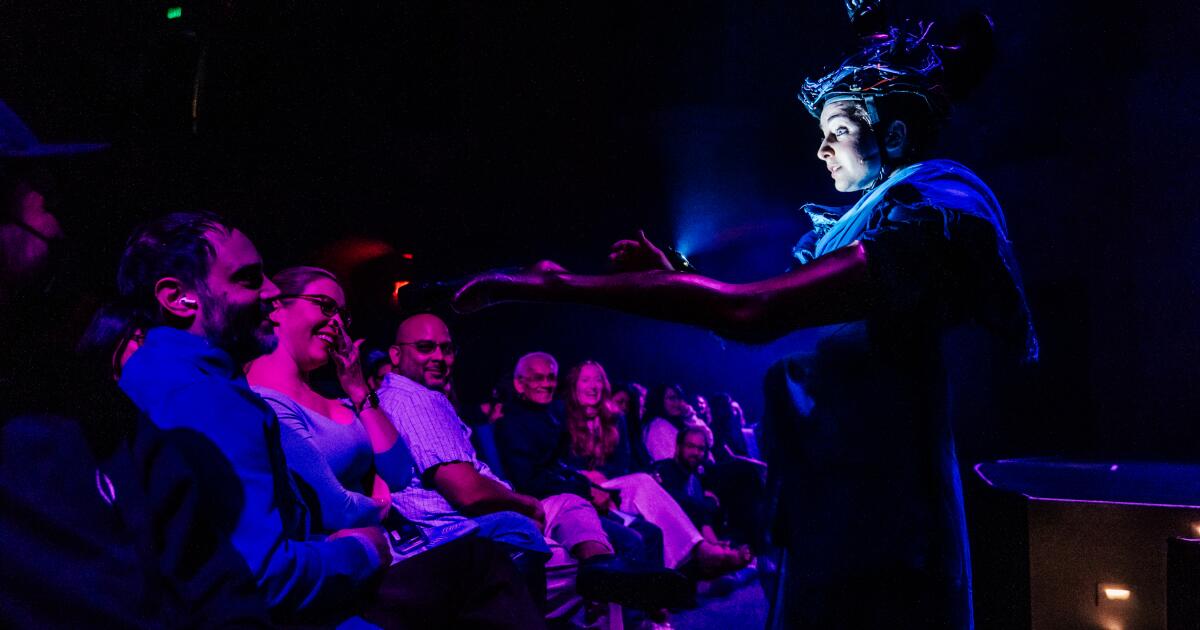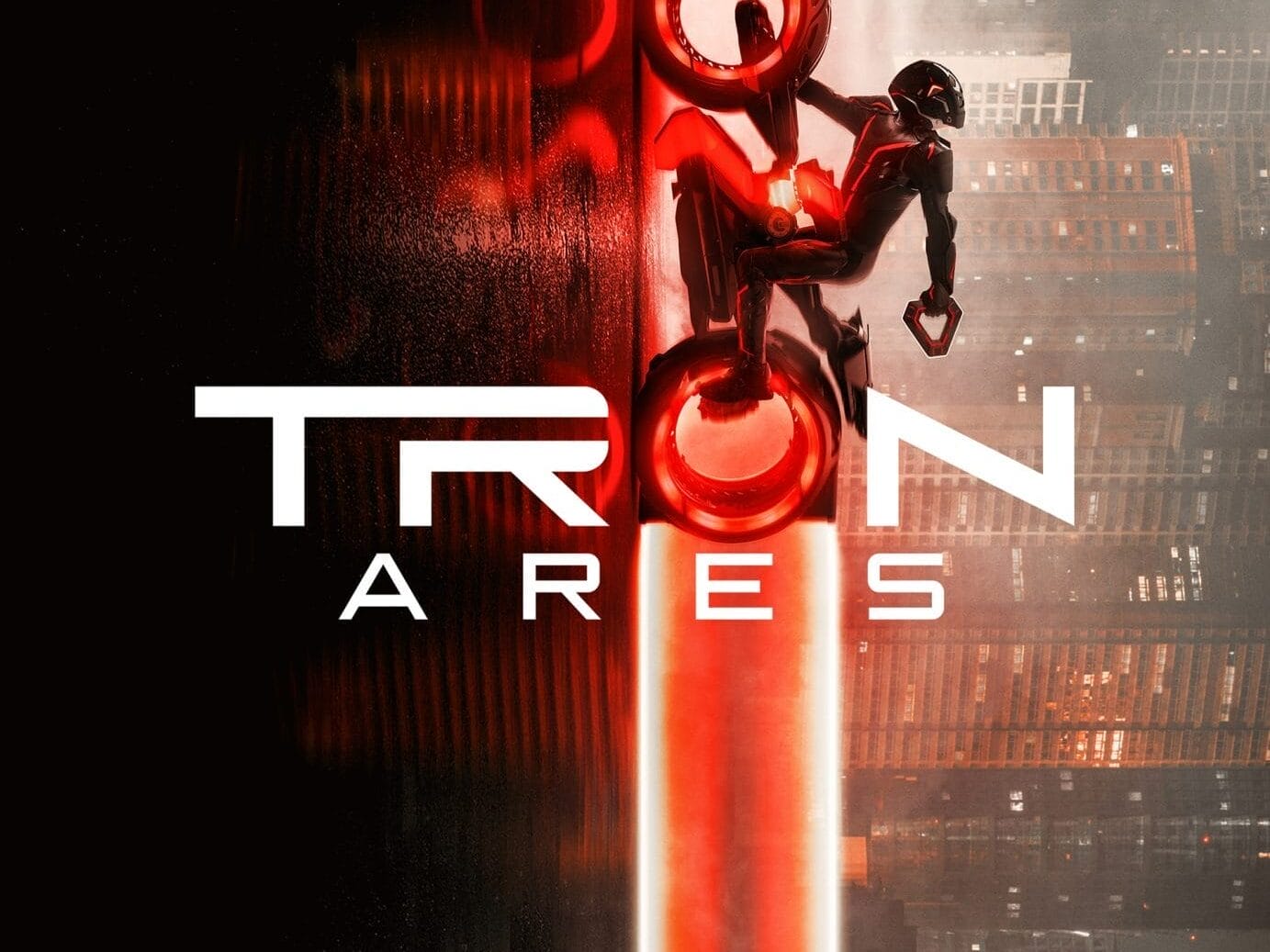Copyright Los Angeles Times

Julia Masli, the comic behind the captivatingly bizarre “ha ha ha ha ha ha ha,” may be from Estonia, but in clown genealogy she is a close relation to Andy Kaufman’s Latka. Her persona is part space alien, part naïf of some Baltic backwater. She wanders through Pasadena Playhouse, where her show opened Sunday, like a “Star Wars” extra who got off at the wrong galaxy. Wearing a headlamp in the shape of a pistol and proudly displaying a spare gold leg that serves as a not-very-dexterous arm, Masli wanders the rows of the theater in search of someone to help. Her manner of speech is otherworldly, like an arthropod testing out human vocal folds. I couldn’t quite make out what she was saying when she entered, because her “ha, ha, ha, has” were uttered without any hint of humor. The sound suggested stomach cramps or perhaps despair beyond the reach of words. The word “problem” was then quizzically emitted. My fellow theatergoers were quick to pick up that they were being asked to share some difficulty they were facing. I mistakenly thought we might still be playing a childish language game. Had she addressed me, I probably would have hooted in response. Masli’s strangeness never goes away, but it becomes increasingly friendly and, by the end of the 75-minute show, comfortingly familiar. This jester from an alternative universe seems genuinely concerned about the common, ordinary unhappiness of perfect strangers. One man mentioned that he doesn’t know what to be for Halloween. Masli, mishearing his worry, assumed he didn’t have a place to go and found someone in the audience who was happy to invite him to her house for a family gathering. When it was later pointed out that Masli solved the wrong problem, she corrected her error and had the man take costume suggestions from an audience that overwhelming thought he should dress up as a pirate. Another theatergoer sadly admitted that he longed to find a tactile hobby, something to keep his hands occupied. Masli proceeded to destroy the chair he was seated on and then invited him to reassemble it on stage. This rackety project, involving an elaborate set of tools and a more experienced handyman, became one of the principal stage activities. The performance, which mostly takes place in the audience, requires theatergoers to crane their necks to discover Masli’s newest target. One woman from Germany complained of profound homesickness. Masli remedied this problem by introducing her to someone who vaguely claimed to be of German extraction. One forthcoming spectator confessed to being burdened with anger over her father’s philandering. Masli responded by dreaming up a ritual involving a sock that was set on fire in symbolic purgation of burdensome resentments. Socks were then collected from willing spectators and added to the sack that was hovering over the dimly lighted set. Masli outlined her plan for a future bonfire. The production seemed too carefully worked out to be completely random. I secretly suspected that some of the compliant audience members might have been selected ahead of time. Yet when one young woman revealed that she needed dental surgery but couldn’t afford the cost even with dental insurance, I was quick to take out my phone and make a donation after she was coaxed to share her Venmo. Masli couldn’t understand why this dental surgery wasn’t free. The audience was quick to supply political reasons that led to Masli staging an exorcism of America’s ruthless economic system. She asked for a white male manager to identify himself and cleanse the sins of greedy capitalism by agreeing to take a shower onstage. A good sport, he changed into a towel and robe and patiently waited for his cue to start lathering up. “Ha ha ha ha ha ha ha,” an award winner at the Edinburgh Festival Fringe, is less a traditional comedy show than an experiment in collective consciousness. It doesn’t take much to transform a room of jaded strangers into a representative slice of compassionate humanity. Masli asks what the philosopher Simone Weil thought was the essential question of being a loving neighbor: “What are you going through?” It turns out that we’re all going through something. One woman who was cold was given coats and sweaters. Another who was tired was invited to take a nap on stage. One person hemmed in by perfectionist anxiety was invited to sing with an off-key Masli. The warbling never improved, but it was heartening to see someone get over their paralyzing self-consciousness. Under the direction of Kim Noble, this touring production from Washington, D.C.’s Woolly Mammoth Theatre Company found ways to choreograph the simultaneous activities of disparate audience members into a lyrical theatrical patchwork. The lunar lighting along with the glow of Masli’s wacky concern enhanced the lyricism of a show whose effect would probably be more concentrated in a more intimate venue. But it was refreshing to experience such a beguiling performance oddity at Pasadena Playhouse. Mainstream entertainment feeds us lies: We’re all eccentrics struggling to find our way. “Ha ha ha ha ha ha ha” reminds us that we’re only a naive and caring interloper away from making the world a slightly more welcoming place.



